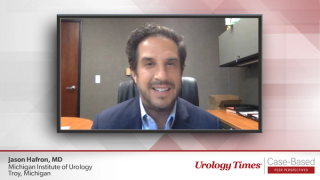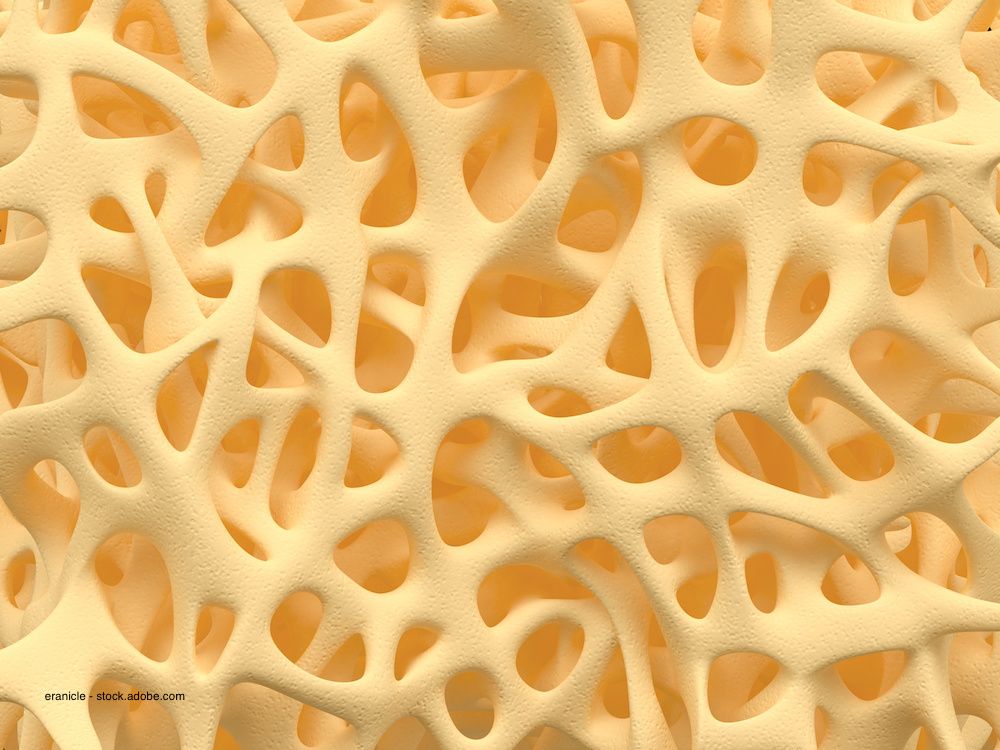
Prostate Cancer
Latest News

Latest Videos

CME Content
More News

Patients who receive a radiation oncology consultation after being diagnosed with localized prostate cancer are much more likely to receive active therapy than men managed only by a urologist, and the men seen by a radiation oncologist are particularly likely to be treated with radiation therapy, according to a Canadian population-based, retrospective cohort study.

Phase III data indicate benefit only for a subset of patients.


"The list of methods and biomarkers to help patients and physicians decide whether to perform biopsy is continuously evolving," writes Sigrid Carlsson, MD, PhD, MPH.

Results of a prospective, multicenter study validate the clinical performance of a PSA isoform assay (IsoPSA) for predicting high-grade prostate cancer, Eric A. Klein, MD, reported at the AUA annual meeting in San Francisco.

In men undergoing prostate biopsy, use of prophylactic antibiotics has been increasing appropriately over time, and fluoroquinolones still dominate, results of an insurance claims database analysis show.

A multi-institutional consortium study conducted to fill a gap in knowledge about long-term outcomes of stereotactic body radiation therapy (SBRT) for low- and intermediate-risk prostate cancer shows that both the long-term efficacy and safety of SBRT compare favorably with the profiles of other established radiotherapy modalities.

A single baseline PSA measurement taken during midlife strongly predicted the subsequent diagnosis of aggressive prostate cancer up to 12 years later among African-American men in the U.S.

"While there was no further reduction of prostate cancer risk after finasteride was discontinued, there was also no evidence that stopping finasteride resulted in more cases of prostate cancer," writes Badar M. Mian, MD.

Retrospective cohort study identifies wide variation in treatment rates, spending.

Both the efficacy and safety of abiraterone acetate (ZYTIGA) treatment for metastatic castrate-resistant prostate cancer (mCRPC) appear to differ depending on race, according to results of Abi Race, a prospective, multicenter trial presented at the American Society of Clinical Oncology annual meeting in Chicago.

Median overall survival for African-American men with advanced prostate cancer who are treated with docetaxel (Taxotere) is similar to that of Caucasian men, according to an analysis of pooled data from nine randomized phase III clinical trials.

"Two provocative studies reported at the 2018 ASCO annual meeting provide additional insight into prostate cancer racial disparities in a different group of patients, namely men with advanced prostate cancer who participated in a variety of clinical trials," writes Leonard G. Gomella, MD.

In this interview, John W. Davis, MD, discusses the advantages and limitations of focal therapy, the ideal candidate, and what current guidelines say about its use.

Imaging with 18F fluciclovine PET/CT (Axumin) tomography identified sites of disease recurrence in a majority of prostate cancer patients with biochemical recurrence and led to changes in treatment course in 59% of men scanned.

Costs could be slashed by $320 million if all men with Gleason scores of 6 or lower pursued initial conservative management, says researcher Justin Trogdon, PhD.

Treatment with apalutamide (Erleada) resulted in a rapid and substantial decline in PSA, and greater magnitude of PSA decline correlated with improvement in several oncologic endpoints, results from the phase III SPARTAN study showed.

A study investigating associations between statin use and prostate cancer outcomes provides further evidence that the medication may have race-related benefit, providing protective effects among Caucasian men but not in African-Americans.

Studies show moderate alcohol intake has surprising links to prostate disease.

"While these results cannot be extrapolated to men with very high PSA level or advanced clinical stage, the study provides appropriate benchmark data for our contemporary patients with high-risk clinically localized prostate cancer," writes Badar M. Mian, MD.

Men with AR-V7-positive prostate cancer seem to respond positively to a combination therapy with ipilimumab (Yervoy) and nivolumab (Opdivo).

Researchers studied data from a racially diverse cohort of 650 men undergoing a prostate biopsy between January 2007 and January 2018.

Other pipeline products discussed in this round-up include agents for metastatic urothelial cancer, clear cell renal cell carcinoma, and stress urinary incontinence.

Radical prostatectomy can provide superior survival compared with radiation therapy, especially in young and healthy men.

Personally tailored intervention generates patient interest, QoL improvements.






